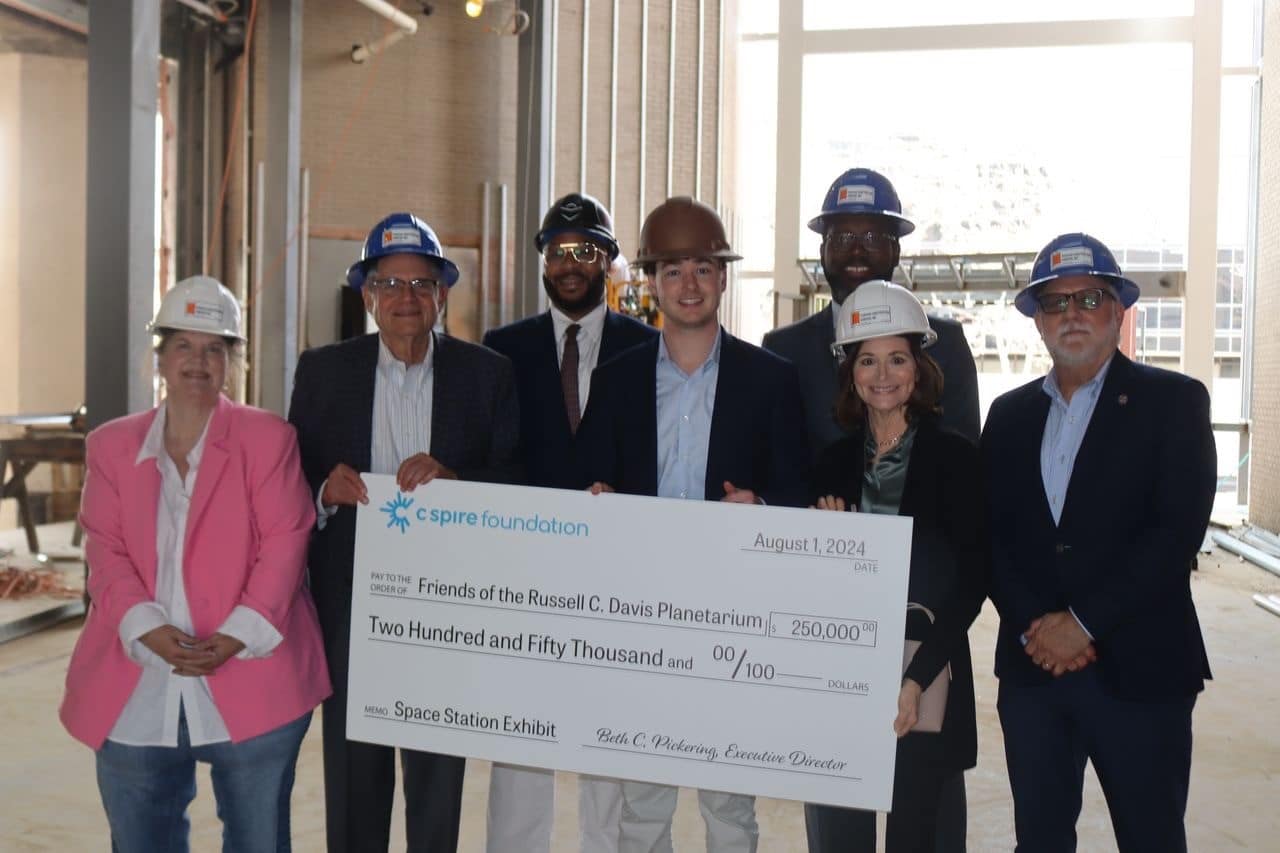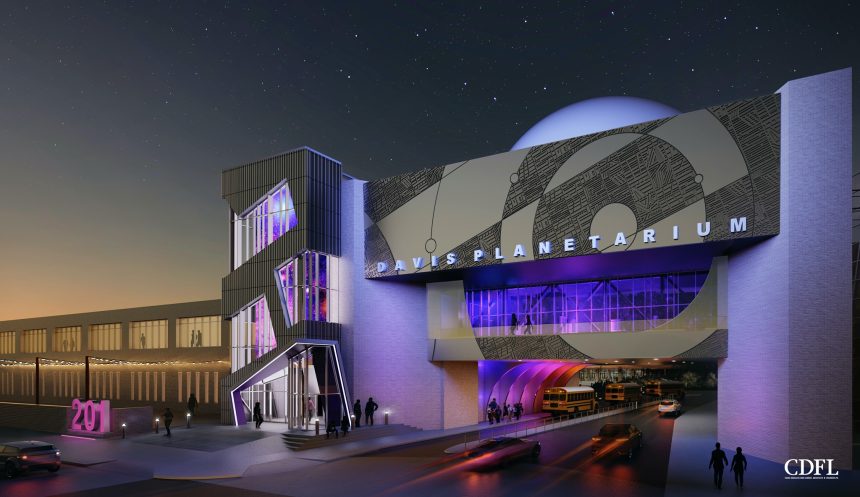One of Jackson’s most recognizable downtown landmarks is preparing for a new chapter, in part due to a $250,000 donation from the C-Spire Foundation.
The funding will support the transportation of the long-closed Russell C. Davis Planetarium into an attraction called “The World’s First Orbital Museum.” The project, now underway, will bring immersive exhibits that use augmented and virtual reality to tell the story of Mississippi’s role in the U.S. space program.
The planetarium shut its doors in 2019, leaving a gap in the city’s cultural and educational offerings. The renovation aims to change that, with new programming designed to spark interest in science, technology, engineering, and math among students and their families.
President and executive director of the C Spire Foundation, Beth Pickering, said the investment reflects the organization’s mission.
“The C Spire Foundation is proud to invest in the revitalization of the Russell C. Davis Planetarium and help inspire curiosity and innovation in Mississippi students and families for years to come,” Pickering said. “This donation reflects our commitment to advancing STEM and STEAM education opportunities in our home state.”

Jackson Mayor John Horhn praised the contribution as a boost for both education and downtown revitalization.
“We’re grateful to the C Spire Foundation for their generosity and vision in supporting the transformation of the Russell C. Davis Planetarium,” he said. “This investment is helping bring world-class science and technology exhibits to Jackson, inspiring the next generation and energizing our downtown.”
The planetarium is expected to reopen in early 2026, with a grand opening celebration scheduled for April. The C-Spire Foundation will serve as a presenting sponsor of the event.
Founded in 2005, the C-Spire Foundation has focused on advancing STEM education, digital literacy, and professional skills in Mississippi, Tennessee, and Alabama. Since 2015, it has funded initiatives such as coding academies, accelerated degree programs, and scholarships.
For Jackson, the $250,000 gift represents more than financial support — it marks a step toward bringing life back to a building that once drew thousands of visitors each year, with a future designed to inspire the next generation of scientists and explorers.








